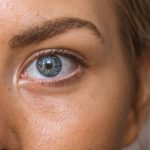How to prevent dry eyes in the winter months
As the weather turns colder, patients frequently ask how to prevent dry eyes. During fall and winter, humidity drops.
During windy days, eyes may dry even more. Cool, brisk wind irritates eyes that are already prone to dryness. Dry eye happens when the eyes either cannot produce enough tears or they produce low-quality tears. Seasonal changes like dryer air make dry eye worse.
Common symptoms of dry eye include:
- Eye redness
- The feeling that something is in your eyes
- Increased light sensitivity
- Stinging, burning, itchy, or scratching sensations in one or both eyes
- Contact lenses become uncomfortable
- While this may sound counter-intuitive watery eyes or a stringy mucus may hint to dry eye.
- Blurry vision and fatigued eyes
Keep in mind the following tips on how to prevent dry eyes are not a substitute for medical care, these tips help you live an eye-healthy lifestyle. Following these tips may relieve or prevent mild-to-moderate dry eye for many patients.
If you suffer from extreme, chronic dry eye or experience sharp pain be sure to visit an eye doctor. In some cases, dry eye indicates a serious eye health issue or can lead to eye infections or damage to the eye.
17 Eye-Healthy Tips On How To Prevent Dry Eyes This Winter And Beyond
- Consider using a humidifier inside. Not only does humidity drop outside, but people also turn up their heating so the air inside is even drier than the air outside. A humidifier adds soothing moisture to the air and may relieve dry eye.
- Protect your eyes when outside. Consider wearing a brimmed hat, sunglasses, goggles, or a visor. Wind, UV rays, and the elements irritate dry eyes even during the colder months. Also, damaging UV rays still cause premature eye aging during the winter.
- Stay hydrated by drinking plenty of water. If cold water doesn’t appeal to you, try herbal tea or hot lemon or ginger infused water.
- Position your furniture so you are not sitting in a space where your heating vents blow directly on your face. Also, avoid sitting too close to heaters and heating vents.
- People tend to spend more time using their computer, television, or devices during fall and winter. Back to school time and the end of the summer weather causes people to spend more time working, studying, or enjoying indoor passive activity. Be sure to give your eyes frequent breaks since most people tend to blink less while focused on monitors or device screens.
- If you wear contact lenses, consider wearing your glasses a little more frequently since contacts tend to irritate dry eyes. Also, glasses offer a barrier between you and the wind or hot air from indoor heating.
- If you wear eye makeup, be sure to remove your makeup before going to bed. Mascara and other eye makeup can sometimes contribute to dry eye and eye irritation by clogging tear ducts. Carefully washing with warm water, a soft cloth, and a gentle cleanser like baby shampoo helps prevent this from happening.
- Use an over the counter or prescription moisturizing eye drops. Talk with your optometrist for guidance on the appropriate product for your needs and your medical history. For many patients, artificial tears and an eye-healthy lifestyle restore hydration to their eyes.
- If you smoke, consider quitting. If you do not smoke, avoid secondhand smoke since it also dries and irritates your eyes (and lungs).
- Limit consumption of coffee and other caffeinated beverages. Caffeine is a diuretic that can further exacerbate dry eye. Be aware of “hidden” caffeine in over the counter pain medication, chocolate, tea, and sodas. Also, limit your consumption of alcohol for similar reasons.
- If you use a blow dryer, be sure to avoid pointing the hot air at your face and eyes. The same applies to any other fan or device you use that blows hot air.
- Eat foods rich in omega-3 fatty acids such as fish or walnuts. Also, consider taking omega-3 supplements. These healthy fats also help maintain lubricated eyes and they may reduce inflammation.
- Consume foods rich in vitamins A, C and E. These eye-friendly nutrients support the eyes in several ways. Sources include citrus fruit, carrots, avocados, and other fresh produce. Consider supplementing as an option to ensure you consume enough of these vitamins.
- Remember to blink frequently. Some people blink less than ideal when during periods of intense focus or concentration. This frequently happens at the computer, but may also happen while reading, playing sports, pursuing hobbies, or working.
- As much as possible, avoid rubbing or touching your eyes as it irritates them and may lead to increased inflammation.
- Many patients find that warm eye compresses soothe their dry eye symptoms. Just be sure to avoid spreading infection from one eye to another by using a different cloth and different water for each eye. Come by the office to pick up a handy Stye Kit.
- Dry eye can be a sign of many eye conditions ranging from mild to severe. Be sure to see your eye care professional for an annual screening and discuss any symptoms you experience.
By living an eye-healthy lifestyle you may be able to prevent dry eye or relieve the symptoms. For those with more severe dry eye, a skilled optometrist offers treatment options.
Since the best treatment depends on the source of your dry eye, your eye doctor may need to conduct a comprehensive eye exam if you haven’t had one recently.
Piedmont EyeCare is Charlotte’s dry eye center. We are your experts on how to prevent dry eyes and offer a comprehensive range of treatments. If you suffer from dry eye, contact us for an exam.





